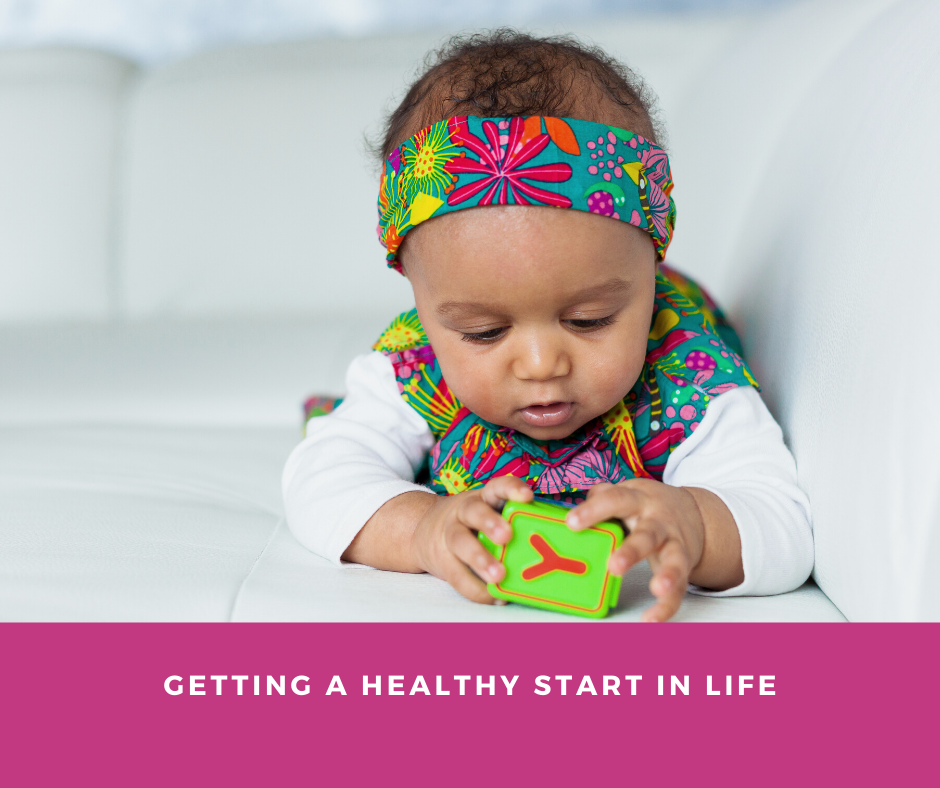Thanks to decades of research, we now know a great deal about brain development and its impact on child development. One of the things we’ve learned is that a baby’s brain begins forming very early in prenatal life (just a few weeks after conception). Because a baby’s brain is extremely impressionable (neuroscientists use the term plastic) in early life, infants placed in foster care may have particular needs.

The plasticity of an infant’s brain has both a positive and a negative side. The positive consequences are that young children’s brains are more open to learning and enriching influences. The downside is that young children’s brains are more vulnerable to developmental problems when their environment is impoverished or un-nurturing.
Although an infant’s brain begins developing in prenatal life, the rest of brain development follows after birth based on a baby’s experience and environment to shape her or his emerging mind. That means that it’s critical that the approximately 1,080 (or six percent) of those under the age of one placed in foster care in Illinois in 2019 receive loving, nurturing, responsive caregiving to provide them with the ideal environment to thrive and learn.
Due to the circumstances that required infants to be placed in foster care—neglect, substance abuse, poverty, inability to care for a child—fostering infants can involve unique challenges.
Prenatal Care
Prenatal care can have a significant impact on the health and wellness of babies. Infants placed in foster care are eight times more likely to have never received prenatal care.
A lack of prenatal care can have serious consequences such as preterm birth, anemia, and low birth weight. According to the Stanford University School of Medicine, babies born to mothers who received no prenatal care are three times more likely to be born at low birth weight. Low birth weight can cause many health and learning problems for young children, including language delays, attention disorders, and even severe neurological issues.
An essential ingredient in prenatal care is prenatal vitamins, which provide more folic acid and iron than usual. When an expectant mother doesn’t take the required amounts of folic acid, they risk neural tube defects. These defects are severe abnormalities of the fetal brain and spinal cord.
Substance Abuse
Prenatal substance abuse can lead to severe problems, including Neonatal abstinence syndrome (NAS), a group of conditions caused when a baby withdraws from certain drugs they are exposed to in the womb. Many babies can recover in a few days or weeks, but others may experience symptoms for months and require extensive additional care. NAS may lead to long-term health and development problems, including hearing and vision problems and learning and behavior problems.
Alcohol can interfere with the growth of a fetus and cause congenital disabilities and lifelong problems. Fetal alcohol syndrome (FAS) is the most severe disorder caused by drinking during pregnancy and can cause growth problems, mental disabilities, behavioral problems, and abnormal facial features.
Nicotine Use
Nicotine is one of 4,000 chemicals that can pass from a pregnant woman to her fetus. It causes permanent damage to the fetus’s brain and lungs. Nicotine also causes blood vessels to narrow, so less oxygen and fewer nutrients reach the fetus. Also, babies who are exposed to secondhand smoke have an increased risk of SIDS. They are more likely to have asthma attacks and ear infections.
Added Challenges
The added challenges of fostering an infant may necessitate strong support and assistance that may not be available in traditional foster care. For example, early interventions, which can be critical, are not always available in a traditional foster care setting. The One Family Illinois model of care ensures that therapists and caseworkers are always accessible to provide intervention for the children in their care and support for One Family Illinois Foster Parents.
Even seasoned parents may find that fostering infants is different due to the effects of addiction or neglect. It may require many more sleepless nights to calm a baby suffering from drug withdrawal or toxic stress or extensive patience to manage various unexpected, atypical behaviors due to trauma. But those who foster infants know that their love and support help a baby bond and its brain grow and that every action means that they are giving a baby a better start in life.